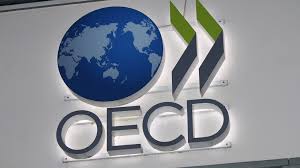Viewing results 1 - 6 of 3
On October 17, 2024, Uzbekistan hosted the IV Tashkent Anti-Corruption Forum, gathering over 250 participants, including officials, international experts, and representatives from civil society. The event was organized by Uzbekistan's Anti-Corruption Agency and partners including the European Union, GIZ (German International Cooperation), and the United Nations Development Programme (UNDP). The forum highlighted Uzbekistan’s progress in fighting corruption and improving its position in key international rankings, such as Transparency International’s Corruption Perceptions Index. Uzbekistan’s successful completion of the OECD’s 2023 anti-corruption evaluation, scoring over 86 points, making it the highest ranked country in Central Asia, was also praised. Key achievements include implementing a national anti-corruption program, creating a long-term strategy for 2030, and actively involving civil society in the fight against corruption. At the forum, a major milestone was the signing of an agreement between Uzbekistan’s Anti-Corruption Agency and the World Bank’s Integrity Vice Presidency to work together on training, projects, and research to combat corruption. The forum also featured discussions on using new technologies to prevent corruption, building a culture to resolve social conflicts, and addressing conflicts of interest through compliance systems.
An initiative to open a representative office for the Organization for Economic Cooperation and Development (OECD) in Kazakhstan has been announced by Deputy Prime Minister Nurlan Baibazarov and William Thompson, Head of the OECD Eurasia Division, who met earlier this week. To date, OECD regional offices operate in China, Indonesia, Ukraine, and Greece, according to the website of the Government of Kazakhstan. During the meeting, the parties discussed implementing OECD recommendations, implementing the Joint Action Plan of the Government of the Republic of Kazakhstan and the OECD Secretariat until 2025, and cooperation within the framework of the OECD Eurasian Competitiveness Program. William Thompson noted the positive experience of OECD interactions with Kazakhstan. Following recommendations from the OECD, several political and economic reforms have been carried out in the country. In particular, institution of investment ombudsman was introduced, parliamentary control over the use of budgetary funds was strengthened, the Low Carbon Development Strategy of the country until 2060 was developed, and the National Contact Center for Responsible Business Conduct and the Supreme Audit Chamber were established. Direct elections of akims (heads) of districts and cities of regional significance has also been introduced. "Our country has been a stable partner of the OECD for more than 15 years and a Central Asian leader in implementing its recommendations. In 2025, Kazakhstan intends to apply to join this authoritative international organization as a full member. We are confident that further cooperation will have a qualitative impact on the socioeconomic and legal aspects of the development of our state," Nurlan Baybazarov stated.
In 2025, Uzbekistan, with the support of the World Bank, will participate in the Programme for International Student Assessment (PISA) administered by the Organization for Economic Cooperation and Development (OECD), with pilot testing starting this May. PISA testing assesses the ability of students from more than 80 countries in their knowledge and skills in reading, math and science. When allocating funding for PISA testing in 2019, World Bank experts noted the acute shortage of teachers and their low qualifications and in addition, the absence of means to assess both the quality of preschool education and a comfortable environment for learning. "Investing in children's early education is one of the most effective ways to develop human capital, which in turn will stimulate economic growth in the country," Hideki Mori, the head of the World Bank's representative office in Uzbekistan, said at the time. Last year's test results placed Uzbek schoolchildren in the bottom ten of the 80 participant countries. The cause indicated significant problems within the domestic education system and subsequent data revealed a direct correlation between test results and families' socioeconomic status. To address the issue, officials plan to allocate more than $3.7 billion for schools and school education curricula this year.



